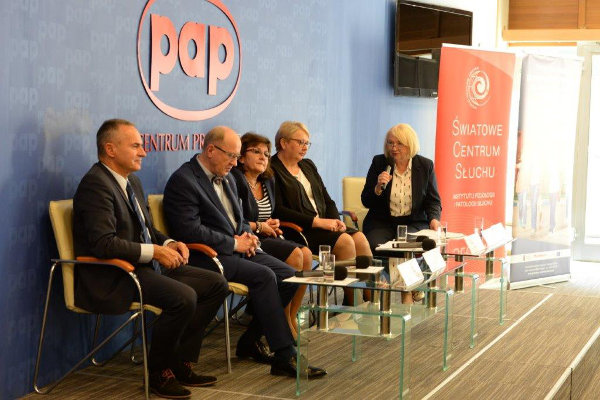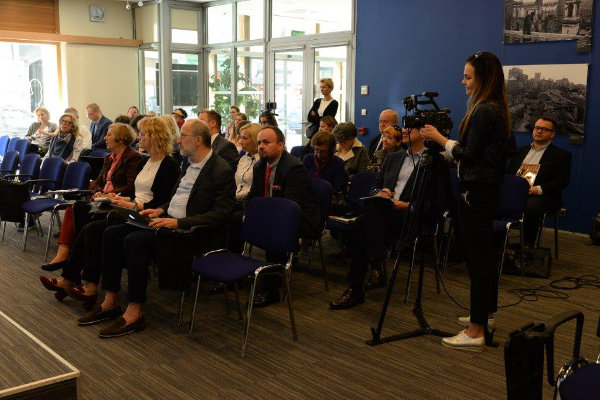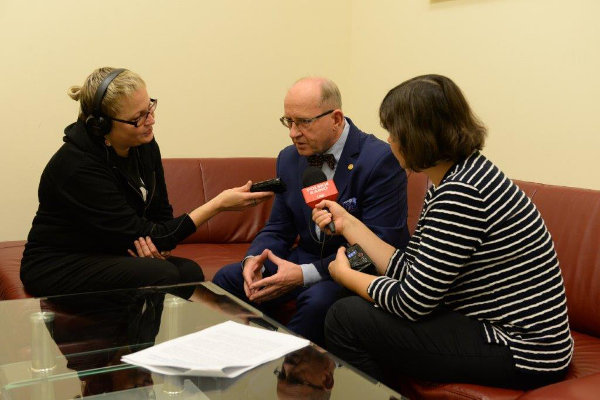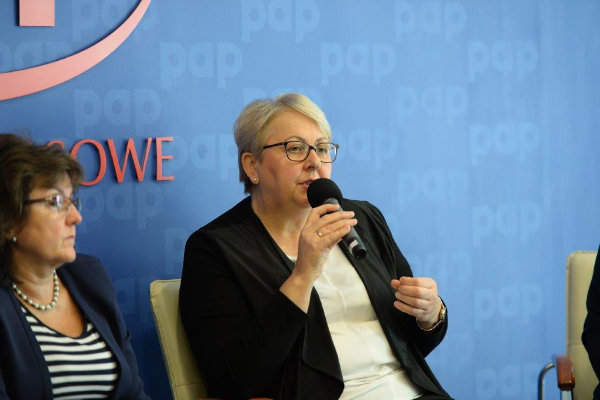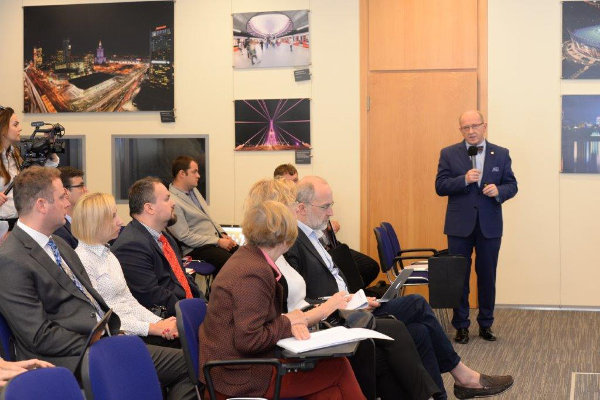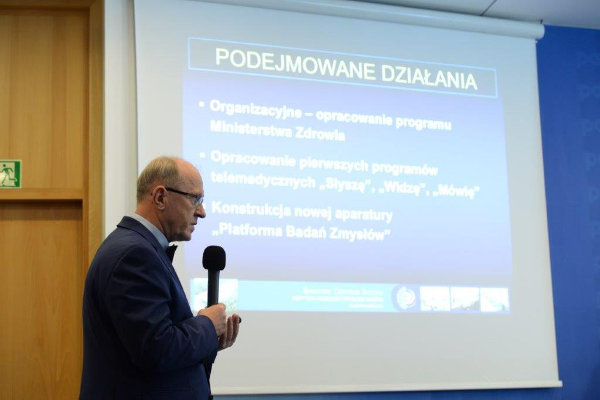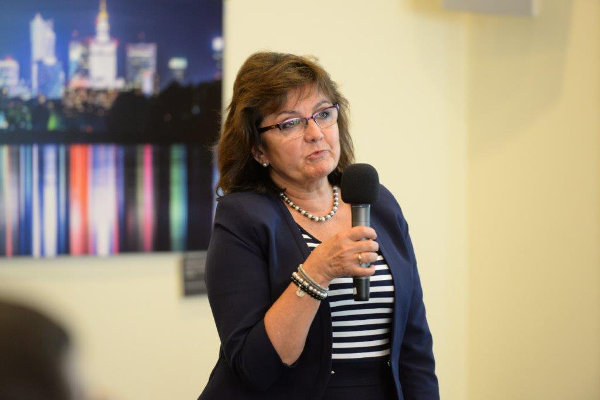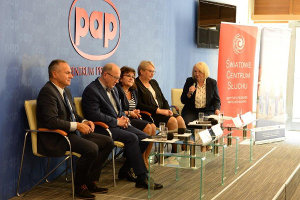
Since the end of the nineties of the last century, the team of the Institute of Physiology and Pathology of Hearing organized and conducted a series of programs aimed at the early detection and treatment of hearing disorders in early school age children. In total, over 1 million hearing screening tests were carried out under dozens of programs and projects, both at the local, national and international level.
Inaugurating the conference Prof. Skarżyński introduced the journalists to the 20-year history of hearing screening, which thanks to specialists from the Institute of Physiology and Pathology of Hearing enabled the examination of Polish school age children on unprecedented scale.
- 20 years ago we faced a serious challenge: we had to convince not only the authorities and officials of that time, but above all our own circles about the necessity of early diagnostics. We also had to persuade the school authorities to let us enter school premises to do the tests. And finally, we had to convince parents that paying attention to the quality of their children's hearing is worthwhile. The first pilot study covered 6,000 children and showed the scale of the problem. - said Prof. Skarżyński.
The results of the screening tests proved that one in every 5 to 6 children may have different kinds of hearing-related problems. These problems are important for the child's development and learning outcomes. The obtained results confirmed the huge scale of the problem of hearing disorders among school children. - Statistically, a child with significant hearing loss has three times worse school results than normally hearing peers. Early detection of hearing disorders in children is of great importance for the early implementation of the early intervention program, the objective of which is to improve the communication process. Specialists from the Institute are fully aware of that, and therefore from the very beginning programs of early auditory intervention were one of the priorities of IFPS 'scientific and organizational activities. Besides, we know what is the practical meaning of the implementation of early medical intervention in a child with so-called peripheral disorders. Surgical, conventional treatment, hearing aid allows faster improvement of the auditory path ensuring better communication with the environment and financial savings for the health care system.
The next item on the conference agenda was the presentation of the results of the "Hearing Screening Program for Primary School Children Living in the Rural Areas", presented by Associate Prof. Krzysztof Kochanek - Coordinator of the Screening Program. In total, thanks to cooperation with KRUS and the Social Insurance Fund for Farmers (Program partners) from 2008 to 2017, 24,244 schools participated in the program in 6,900 rural communes throughout Poland. 469,207 children were examined. The results confirmed high, from 12.8% to 13.5% percentage of children with hearing disorders.
Janina Pszczółkowska - Deputy President of KRUS drew attention to the fact that many parents did not realize that their children might have a hearing problem.
- The initiative to run such programs is very praiseworthy, because it allows the detection of various kinds of hearing disorders in a small child. Thanks to this, we support the development of communication in the youngest children at the outset of school education. - President Pszczółkowska added.
Starting from the 2017/18 school year the Institute of Physiology and Pathology of Hearing started successive programs of hearing screening, which this time will cover the Mazovian Region. It will be the first in the world region of a country whose entire population of children starting school education will be covered by tests. More than 81,000 students will undergo the screening tests.
During the conference, Elżbieta Szymanik - Deputy Director of ESF in the Mazovian Unit for Implementation of EU Programs presented the objectives of the Program.
- The main goal of the Program is to cover the entire population of the first graders of primary schools from four townships and 33 counties of the Mazovian Region, to enable early diagnosis of children or, if necessary, to treat hearing disorders. Particular emphasis will be placed on increasing the awareness of parents and guardians as well as educators about the necessity and purposefulness of hearing screening. - said Elżbieta Szymanik.
The tests launched during this school year, will take place under 37 projects of the "Hearing Screening Program for First Graders of Primary Schools in the Mazovian Voivodeship in the 2017/2018 and 2018/2019 school years."




